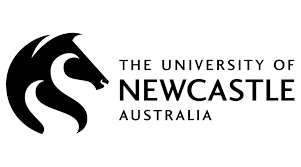University of Newcastle: New benchmarking tool aims to reshape workplaces across Australia
More than half of Australian employees feel lonely in their work, with 15 per cent feeling ‘extremely lonely’, and younger Australians below 29 years of age feeling lonelier than any other age group.
The way Australians work has changed, and employers must adapt to retain staff and increase productivity, researchers behind a new benchmarking tool have advised.
The Australian Workplace Index (AWI) is a unique national benchmarking tool developed in partnership between the University of Newcastle and The Australian National University with the aim of lifting performance in organisations across the country.
University of Newcastle Professor Christina Boedker said recent data from the national AWI survey found that workplaces with empowering leaders were better able to retain staff, with their staff being 25 per cent less likely to consider quitting their job.
“The pandemic has changed the way we work and in turn, what employees value most, there is a need for workplaces to support and nurture staff differently, without regular face-to-face time,” Professor Boedker said.
Professor Kieron Meagher, economist at The Australian National University said that with unemployment at its lowest levels in a decade, being an employer of choice was about more than just pay.
“If businesses want to excel and see results then they need to focus on the wellbeing of their staff and the leadership style of their organisation,” Professor Meagher said.
The AWI will collect quarterly data via a national workplace survey measuring leadership, wellbeing and productivity from thousands of Australian workers.
“If we can set a national benchmark of best practice when it comes to high performing workplaces then we can help other organisations work towards achieving that, increase their productivity and empower their employees to be the best they can be at work,” Professor Boedker said.
The most recent data from the national AWI survey also revealed:
38 per cent of employees spend more than half the time (or one in two days) feeling nervous or anxious; 29 per cent of employees in the 18-to-29-year age category report they feel nervous or anxious nearly every day.
On average, employees accomplish only three quarters (76 per cent) of their daily tasks.
However, staff who work for an empowering leader are 15 per cent more productive in their job.
The AWI’s long-term goal is to have a publicly available national workplace index, providing trend data to help organisations across the country to lift performance.
Hunter selected for national workplace index pilot
In addition to the national benchmarking tool the AWI will provide tailored programs for businesses offering business insights and intelligence in three key areas: leadership, wellbeing and productivity.
The Hunter region has been selected to pilot this program and researchers invite Newcastle-Hunter businesses to register their interest to take part in the free project.
“The Hunter has been chosen as a pilot for the project and we’re already seeing great uptake from key businesses across the region – including Lake Macquarie City Council, PKF, 4UCare, and the Royal Australian Airforce Base to name a few,” Professor Boedker said.
“The AWI provides employers with valuable insights into their leadership capabilities and identifies areas of strength and opportunities for improvement against the national index,” Professor Meagher said.
It is currently offered free of charge to Hunter businesses with a minimum workforce of 15.
Participating firms access their company-specific data via their private online dashboard. Participation is confidential and all information is kept anonymous.

